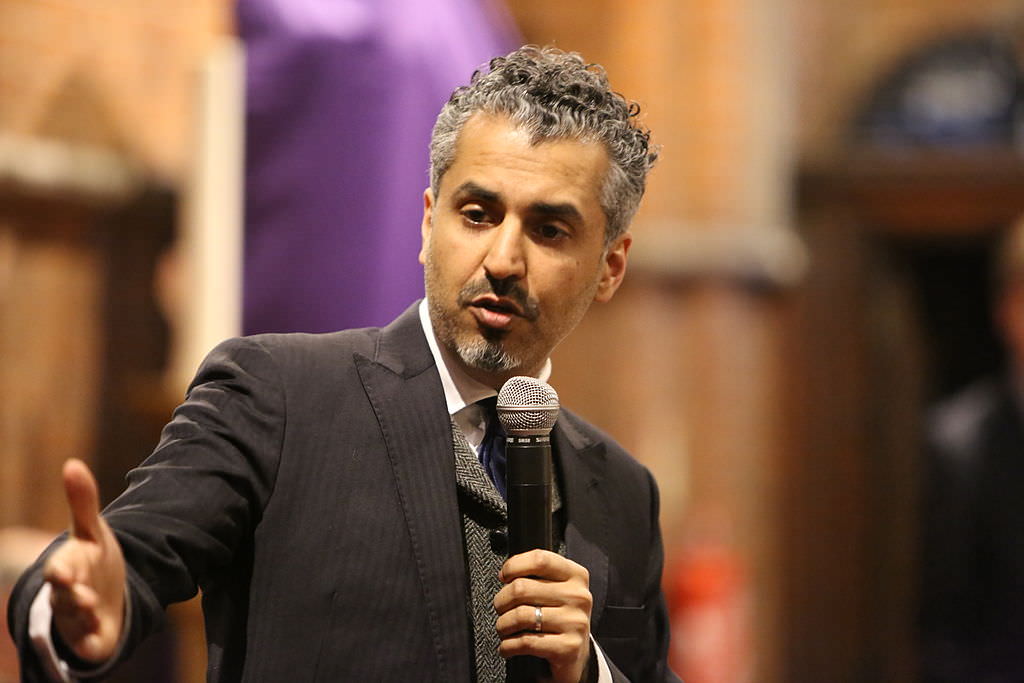News
Making the Profane Sacred
It is an attack on the free reporting of information if context no longer matters, and it is an attack on education if a respectful discussion about language itself risks dismissal.

“By making a statute and by defining blasphemy, the church sought to prevent discussion—sought to prevent argument—sought to prevent a man giving his honest opinion. Certainly a tenet, a dogma, a doctrine, is safe when hedged about by a statute that prevents your speaking against it. In the silence of slavery it exists. It lives because lips are locked. It lives because men are slaves.”
Robert Ingersoll, 1837
The second (or third in some variants) commandment in the Old Testament is “Thou shall not take the name of the Lord in vain.” During the Hellenistic period, this commandment resulted in a taboo against pronouncing the name of God, Yahweh (translated as I am), replacing it with the word Adonai (my lords). In more modern times, for certain Islamic fundamentalists, misusing the name of the prophet Mohammed is deemed to be punishable by death. And even several Western countries still consider religious blasphemy as a punishable crime.
Nevertheless, in most modern Western societies, blasphemy is not effectively prosecuted as a punishable taboo. Instead, we elevate secular profanities to this level. The Puritan roots of our modern US culture no doubt play a role. Sex is more dangerous than violence. Many have noted the incongruity of not allowing the word “fuck” to be stated on television, but there is little or no proscription against the display of violent murders.
Elevating profanity to a kind of special blasphemic significance it does not warrant has expanded to a new realm beyond that of sex. With a growing secular religious fervor, racial slurs have been elevated to the level of universally sacred taboos, and therefore ubiquitously punishable, sometimes with consequences that hearken back to Ingersoll’s prescient quote about blasphemy from almost two centuries ago.
A case in point arose last week, when veteran distinguished New York Times science reporter Donald G. McNeil was forced to resign following an outcry over the revelation that he had used the infamous N-word during a Times trip to Peru for high school students.
What makes this case particularly troubling is clear from the content of the open resignation letter from McNeil, in which he apologized to his colleagues in Science at the Times for his offense. This apparently consisted of answering a question from a student about whether he thought a classmate of hers should have been suspended for using a racial slur in a video she had made as a 12-year-old. McNeil apparently used the slur when asking the student whether she had used the slur against someone else or merely quoted it.
While the Times’ initial investigation confirmed that his intentions in using the slur were not hateful or malicious, a group of Times staffers later complained that because McNeil’s highly lauded reporting involved a pandemic “disproportionately affecting people of color,” any use of offensive racial language was unacceptable, and therefore, so was McNeil’s presence at the Times.
While McNeil’s incisive reporting of the science of the pandemic had little or nothing to do with the broader social issues that concerned the staffers, this argument was enough to sway the leadership of the Times. In announcing their support of McNeil’s departure, Executive Editor Baquet and Managing Editor Joseph Kahn wrote to Times staff, “We do not tolerate racist language regardless of intent.”

This is perhaps the most chilling statement uttered by the editors of a major US newspaper in recent times.
It is an attack on the free reporting of information if context no longer matters, and it is an attack on education if a respectful discussion about language itself risks dismissal. This is part of a more worrisome trend in higher education where “trigger warnings” are now required in many schools before any language is used that might cause discomfort or offense in some individuals. Many professors now simply avoid discussing controversial topics, or emotionally charged language, rather than risk an outcry that could result in their dismissal.
As Stephen Fry has emphasized, offense resides in the camp of the offended. What matters is how they choose to deal with it. If institutions deal with this by restricting all language that might possibly offend someone, there will be little room left for informative social intercourse.
Unfortunately, things have already gone as far as punishing the use of words that are only offensive to those who are offended because their limited vocabulary results in misunderstanding. In 1999 David Howard, an aide to the mayor of Washington, DC used the term “niggardly” during a budget discussion, upsetting a colleague who thought it was a racial slur. Howard was pressured to resign, although he was eventually given another position with the mayor.
Like McNeil, Howard’s reaction, which should have been defiance, was instead penitent. In spite of the fact that the term has nothing to do with race or color and its etymology has no overlap with the N-word, Howard argued that as a white person, he should have been more sensitive.
Interestingly, Julian Bond, chairman of the NAACP in the US spoke out at the time in defense of Howard, stating “You hate to think you have to censor your language to meet other people’s lack of understanding,” and added, to make his point, “seems to me the mayor has been niggardly in his judgement on the issue.”
Bond deplored what he then described as the hair-trigger sensibility on race that can be tripped by both real and false grievances. Unfortunately, in the intervening 20 years the situation has gotten worse, as the McNeil affair demonstrates. There are a host of other horrendous examples. In 2020 a professor of business administration at USC was replaced by the university for using a common Chinese phrase to make a point, but unfortunately when repeated quickly sounded like the N-word.
Surely, one of the purposes of both free speech and education is to encourage reflection, even if that may risk discomfort or offense. I have often stated that one of the purposes of science is to make us uncomfortable. Without moving outside of one’s comfort zone, it is unlikely that one can overcome one’s prior biases and misconceptions—perhaps synonymous with learning itself.
The irrationality of universally treating what some take to be a verbal slur as if it is a sacred sin was recently made clear by the songwriter Tim Minchin. His song “Prejudice” focuses on a six-letter word with a “power more damaging than metal,” that we should not have any right to use. It contains “a couple of Gs, an R and an E, an I and an N” that has “caused damage that we may never mend.” The word, which I can use in this piece, turns out to be “Ginger,” which the red-haired Minchin undoubtedly had to endure while growing up in the UK and Australia.
In Minchin’s lyrics, “Sticks and stones may break your bones, but words can break hearts.” They certainly can if we confer upon them a sacred power they should not have, and introduce a universal punishable prohibition on their use under any circumstances.
The modern world dispensed with that kind of religious tyranny with the Enlightenment. It would be a tragedy if we fell backwards into the same trap in a different, secular context. Especially when the wisdom necessary to overcome this trend can be found by internalizing a chant often heard in primary school playgrounds. There children defend themselves with a verbal sword that Minchin rephrased for his own purpose but which the rest of us remember as, “Sticks and stones may break my bones, but names will never hurt me.”






